-
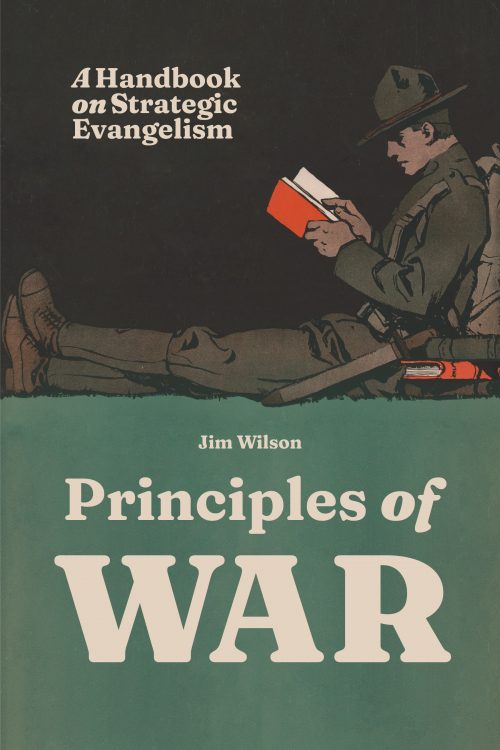
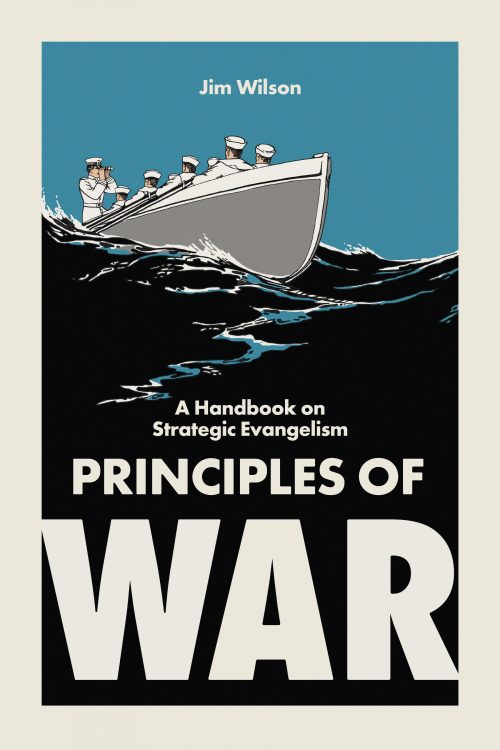 In the study of warfare, great men have concluded that there are some overriding principles which, if followed, will always tend toward success in battle, and if neglected or ignored, will tend toward defeat or even destruction. These principles have been entitled the "principles of war." But not all warfare is waged on a battlefield: every Christian is called to be a soldier. Our fight is against Satan, our objective is the acknowledgment and fulfillment of God's commands, and our ammunition is the power of the Holy Spirit. In Principles of War, Jim Wilson outlines the time-tried, fundamental principles of war and explains how we can employ them in our daily spiritual battles as we fight a war which our commander in chief has already won for us.
In the study of warfare, great men have concluded that there are some overriding principles which, if followed, will always tend toward success in battle, and if neglected or ignored, will tend toward defeat or even destruction. These principles have been entitled the "principles of war." But not all warfare is waged on a battlefield: every Christian is called to be a soldier. Our fight is against Satan, our objective is the acknowledgment and fulfillment of God's commands, and our ammunition is the power of the Holy Spirit. In Principles of War, Jim Wilson outlines the time-tried, fundamental principles of war and explains how we can employ them in our daily spiritual battles as we fight a war which our commander in chief has already won for us. -
 “Revolutionary love” sounds like an oxymoron. Revolution is usually a negative, violent, and destructive change, while love is positive, peaceful, and contented. But true love always changes people. And Christ’s love brings the most revolutionary change of all. Festo Kivengere (1919–88) experienced both kinds of revolution. He escaped Uganda when the brutal regime of Idi Amin seized power. But he could not escape the pursuit of Jesus, who came into his life with radically transformative grace. In Revolutionary Love, Kivengere tells his story of learning to freely receive Christ’s love and freely share it with others. Have an Audible subscription? You can also get this title on Audible here.
“Revolutionary love” sounds like an oxymoron. Revolution is usually a negative, violent, and destructive change, while love is positive, peaceful, and contented. But true love always changes people. And Christ’s love brings the most revolutionary change of all. Festo Kivengere (1919–88) experienced both kinds of revolution. He escaped Uganda when the brutal regime of Idi Amin seized power. But he could not escape the pursuit of Jesus, who came into his life with radically transformative grace. In Revolutionary Love, Kivengere tells his story of learning to freely receive Christ’s love and freely share it with others. Have an Audible subscription? You can also get this title on Audible here. -
 The Christian faith has repeatedly been called a “religion of the book.” Along with the incarnate Word and the oral word of preaching, God has chosen the medium of books to proclaim His goodness to us. The Bible is the book per se, and it sets the standard for the Christian faith. The Protestant Reformation of the sixteenth century saw the dramatic power of the printed word to bring light out of darkness as literature changed the thought and life of nations. The Reformers used pamphlets and tracts extensively to bring about spiritual revolution—the printing press turned out to be the lever with which the enemy was lifted from his saddle. In A Religion of Books, Bockmuehl traces the role books played in the Reformation and through various movements of the Spirit in the following centuries. He also addresses how the written word shapes political movements and how Christians can continue to use literature to point people to Christ.
The Christian faith has repeatedly been called a “religion of the book.” Along with the incarnate Word and the oral word of preaching, God has chosen the medium of books to proclaim His goodness to us. The Bible is the book per se, and it sets the standard for the Christian faith. The Protestant Reformation of the sixteenth century saw the dramatic power of the printed word to bring light out of darkness as literature changed the thought and life of nations. The Reformers used pamphlets and tracts extensively to bring about spiritual revolution—the printing press turned out to be the lever with which the enemy was lifted from his saddle. In A Religion of Books, Bockmuehl traces the role books played in the Reformation and through various movements of the Spirit in the following centuries. He also addresses how the written word shapes political movements and how Christians can continue to use literature to point people to Christ. -
 “Above all else, guard your heart, for it is the wellspring of life” (Prov. 4:23). Whether we know it or not, all of us have had heart trouble. The good news is that Jesus Christ is the best heart specialist of all time. In this collection, Bessie examines the Bible’s references to the heart: what God says about our condition, and what provision He has made for us in Jesus Christ. It is no-nonsense Bible teaching with an emphasis on practical application.
“Above all else, guard your heart, for it is the wellspring of life” (Prov. 4:23). Whether we know it or not, all of us have had heart trouble. The good news is that Jesus Christ is the best heart specialist of all time. In this collection, Bessie examines the Bible’s references to the heart: what God says about our condition, and what provision He has made for us in Jesus Christ. It is no-nonsense Bible teaching with an emphasis on practical application. -
 “I had never read anything like this in the religious books of the Hindus.” After years of searching for something more than the hopeless existence her religion offered to those not born into a high caste, Pandita had at last discovered someone who could uplift the downtrodden women of India—and every land. “To me, who but a few moments ago ‘sat in the region and shadow of death, light had sprung up’ (Matthew 4:16).” In An Honorable Heritage, Pandita Ramabai tells her story of being born into the privileged Brahman caste and leaving tradition behind for something far better—the light and hope she found in Christ.
“I had never read anything like this in the religious books of the Hindus.” After years of searching for something more than the hopeless existence her religion offered to those not born into a high caste, Pandita had at last discovered someone who could uplift the downtrodden women of India—and every land. “To me, who but a few moments ago ‘sat in the region and shadow of death, light had sprung up’ (Matthew 4:16).” In An Honorable Heritage, Pandita Ramabai tells her story of being born into the privileged Brahman caste and leaving tradition behind for something far better—the light and hope she found in Christ. -
 The Holy Spirit is in business these days. Christ is healing wounds that no one else can heal. People all over the world are experiencing the love of God in a new way. The Spirit is blowing our fences down, reconciling us to God and each other. Sin remains just talk about ethics, until the Holy Spirit comes, and we find ourselves caught red-handed in His revealing light. But the blessed Holy Spirit is not a policeman. He is the Friend of the guilty. He convicts in order to liberate. See what happens when a person comes afresh to Him.
The Holy Spirit is in business these days. Christ is healing wounds that no one else can heal. People all over the world are experiencing the love of God in a new way. The Spirit is blowing our fences down, reconciling us to God and each other. Sin remains just talk about ethics, until the Holy Spirit comes, and we find ourselves caught red-handed in His revealing light. But the blessed Holy Spirit is not a policeman. He is the Friend of the guilty. He convicts in order to liberate. See what happens when a person comes afresh to Him. -
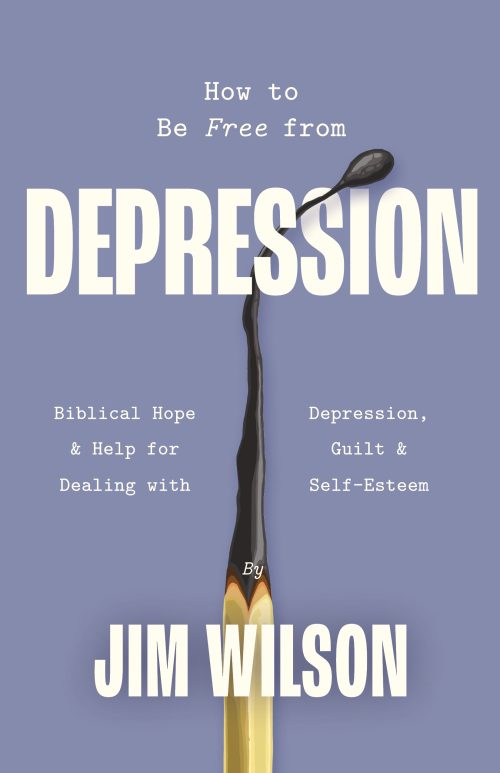 The thoughts you have when you’re depressed come from the devil. The good news for you is that the devil is a liar. Do you feel weighed down all the time? Perhaps, although you are a Christian and know you’re going to heaven, your spiritual life seems mediocre at best. You know the Bible says to rejoice always, and you’d like to be living joyfully, but you just don’t know how. In this sequel to How to Be Free from Bitterness, Jim Wilson returns to talk about how to deal with (and get rid of) depression, feelings of guilt, and problems with self-esteem. Many Christians feel like they are enslaved to these sins, like there is no way out. But this is not true. The truth is that Christ has freed us from the penalty of sin and the power of sin. If you are a Christian, you are already free. Depression, guilt, low self-esteem—whatever your problem is, it can be put to death. “And you will know the truth, and the truth will make you free” (John 8:32).
The thoughts you have when you’re depressed come from the devil. The good news for you is that the devil is a liar. Do you feel weighed down all the time? Perhaps, although you are a Christian and know you’re going to heaven, your spiritual life seems mediocre at best. You know the Bible says to rejoice always, and you’d like to be living joyfully, but you just don’t know how. In this sequel to How to Be Free from Bitterness, Jim Wilson returns to talk about how to deal with (and get rid of) depression, feelings of guilt, and problems with self-esteem. Many Christians feel like they are enslaved to these sins, like there is no way out. But this is not true. The truth is that Christ has freed us from the penalty of sin and the power of sin. If you are a Christian, you are already free. Depression, guilt, low self-esteem—whatever your problem is, it can be put to death. “And you will know the truth, and the truth will make you free” (John 8:32). -
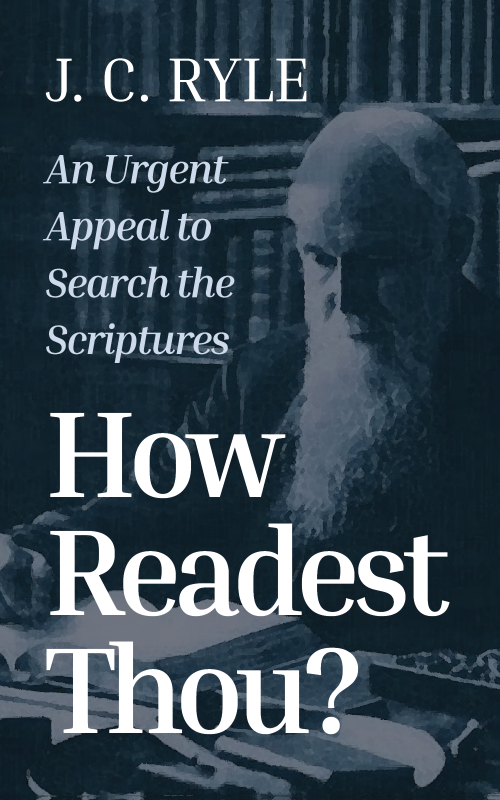 Join J.C. Ryle as he explains the benefits of reading (and rereading) the Bible, and find inspiration for your daily devotions in this classic work. Do you read the Bible? “I’m not a Christian, so what’s the point?” “I read it once – why do I need to read it again?” Why should you read the Bible? For eighteen centuries it has been studied and prayed over by millions of Christians and explained and preached by thousands of ministers. It meets the hearts and minds and consciences of Christians in the twenty-first century as fully as it did when it was first completed. It is still the first book which fits children’s minds when they begin to learn religion, and the last to which the old man clings as he leaves the world. It is the book for every heart, because God who alone knows all hearts dictated it. The Bible alone explains the state of things that we see in the world around us. There are many things on earth which a natural man cannot explain. The amazing inequality of conditions, the poverty and distress, the oppression and persecution, the failures of politicians and legislators, the constant existence of uncured evils and abuses—all these things are often puzzling. We see it, but do not understand. But the Bible makes it all clear. Do you read the Bible? Come and read the book whose teaching “turned the world upside down.” Come read the Bible.
Join J.C. Ryle as he explains the benefits of reading (and rereading) the Bible, and find inspiration for your daily devotions in this classic work. Do you read the Bible? “I’m not a Christian, so what’s the point?” “I read it once – why do I need to read it again?” Why should you read the Bible? For eighteen centuries it has been studied and prayed over by millions of Christians and explained and preached by thousands of ministers. It meets the hearts and minds and consciences of Christians in the twenty-first century as fully as it did when it was first completed. It is still the first book which fits children’s minds when they begin to learn religion, and the last to which the old man clings as he leaves the world. It is the book for every heart, because God who alone knows all hearts dictated it. The Bible alone explains the state of things that we see in the world around us. There are many things on earth which a natural man cannot explain. The amazing inequality of conditions, the poverty and distress, the oppression and persecution, the failures of politicians and legislators, the constant existence of uncured evils and abuses—all these things are often puzzling. We see it, but do not understand. But the Bible makes it all clear. Do you read the Bible? Come and read the book whose teaching “turned the world upside down.” Come read the Bible. -
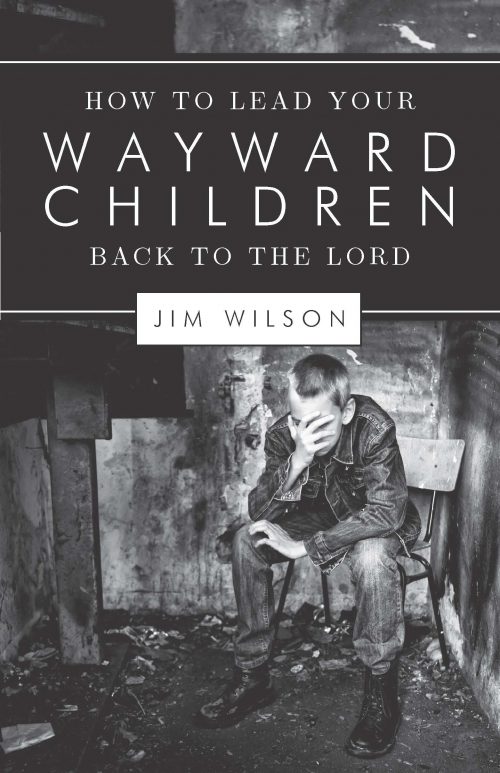 You love God. You love your kids. So why don’t they love Him? God promises lovingkindness to a thousand generations for families who love and obey Him (Deut. 7:9). Why are children who grew up in Christian homes leaving the faith, and how do we get them to come back? No matter how old your children are, there is a solution. With decades of pastoral wisdom, Jim Wilson identifies the common causes of rebellion and helps parents apply the eternal truths of Scripture to “turn the hearts of the parents to their children and the disobedient to the wisdom of the righteous—to make ready a people prepared for the Lord” (Luke 1:17).
You love God. You love your kids. So why don’t they love Him? God promises lovingkindness to a thousand generations for families who love and obey Him (Deut. 7:9). Why are children who grew up in Christian homes leaving the faith, and how do we get them to come back? No matter how old your children are, there is a solution. With decades of pastoral wisdom, Jim Wilson identifies the common causes of rebellion and helps parents apply the eternal truths of Scripture to “turn the hearts of the parents to their children and the disobedient to the wisdom of the righteous—to make ready a people prepared for the Lord” (Luke 1:17).
-
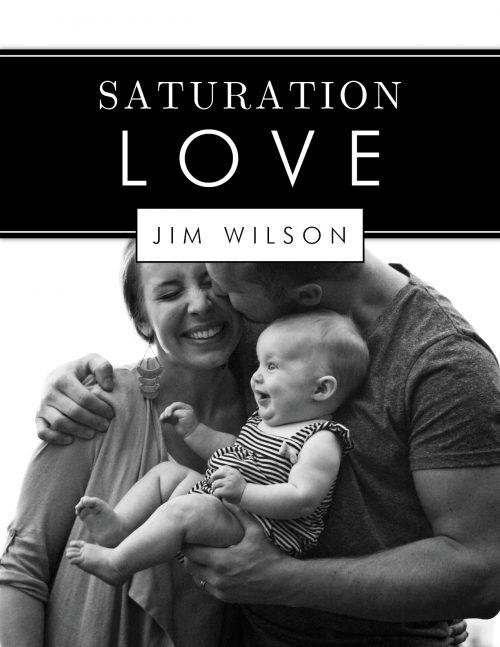 We love our kids, but do we love like God loves....without conditions, reservations, or reluctance? In this excerpt from his popular book How to be Free from Bitterness, Jim Wilson identifies the troublesome consequences of insufficient parental love and points readers to the glorious fruit of superabundant kindness, and patience and helps parents apply the eternal truths of Scripture to grow peace and joy in their homes.
We love our kids, but do we love like God loves....without conditions, reservations, or reluctance? In this excerpt from his popular book How to be Free from Bitterness, Jim Wilson identifies the troublesome consequences of insufficient parental love and points readers to the glorious fruit of superabundant kindness, and patience and helps parents apply the eternal truths of Scripture to grow peace and joy in their homes.
-
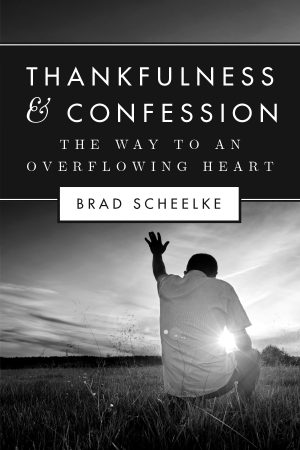 “Oh, the depth of the riches and wisdom and knowledge of God!” (Rom. 11:33). Our heavenly Father has given us unfathomable blessings, but we often fail to live as if they are truly ours. In thankfulness and Confession, Brad Scheelke encourages readers to meditate on and rejoice in the glorious riches of our inheritance in Christ. As we regularly give thanks for what God has given us, our thoughts and actions will begin to change . . . often in surprising ways. Gratitude also changes how we deal with sin. When we confess our sin, bringing it into the light of Christ’s riches, we now see not only the darkness of our own evil, but also the beauty of God’s holiness and grace. When we learn to practice thankfulness and confession in this way, our hearts will overflow in joy, in love for one another, and in glory to God.
“Oh, the depth of the riches and wisdom and knowledge of God!” (Rom. 11:33). Our heavenly Father has given us unfathomable blessings, but we often fail to live as if they are truly ours. In thankfulness and Confession, Brad Scheelke encourages readers to meditate on and rejoice in the glorious riches of our inheritance in Christ. As we regularly give thanks for what God has given us, our thoughts and actions will begin to change . . . often in surprising ways. Gratitude also changes how we deal with sin. When we confess our sin, bringing it into the light of Christ’s riches, we now see not only the darkness of our own evil, but also the beauty of God’s holiness and grace. When we learn to practice thankfulness and confession in this way, our hearts will overflow in joy, in love for one another, and in glory to God. -
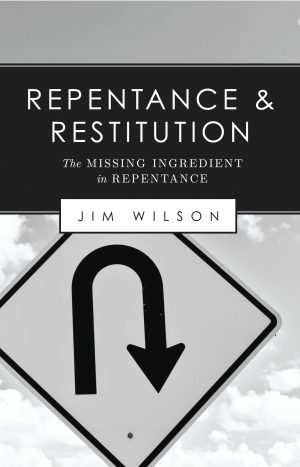 Jesus’ death paid for our sins - the guilt, the death, and the punishment. Jesus does not repay the man who got ripped off when we stole from him. According to the Bible, the person who comes to the Lord in repentance is to pay the one he stole from the value of the stolen goods plus one fifth of the value. But what if it is a candy bar you took twenty years ago? The amount stolen and the time since the theft do not make it yours. There are many Christians who are living subnormal Christian lives because they are too proud or too afraid to make restitution. They are like people with low-grade fevers; they are not sick enough to be in bed, but too sick to do anything worthwhile. Even if no one knows about the thefts, these Christians are poor witnesses for Jesus Christ. They may have confessed and repented in words, but if they do not make restitution, it is not true repentance, and they are not forgiven.
Jesus’ death paid for our sins - the guilt, the death, and the punishment. Jesus does not repay the man who got ripped off when we stole from him. According to the Bible, the person who comes to the Lord in repentance is to pay the one he stole from the value of the stolen goods plus one fifth of the value. But what if it is a candy bar you took twenty years ago? The amount stolen and the time since the theft do not make it yours. There are many Christians who are living subnormal Christian lives because they are too proud or too afraid to make restitution. They are like people with low-grade fevers; they are not sick enough to be in bed, but too sick to do anything worthwhile. Even if no one knows about the thefts, these Christians are poor witnesses for Jesus Christ. They may have confessed and repented in words, but if they do not make restitution, it is not true repentance, and they are not forgiven.
